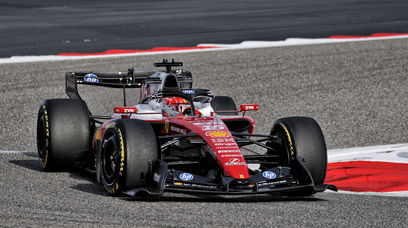The brake problem that befell Charles Leclerc at the season-opening race in Bahrain sparked disappointment at Ferrari as from early on in the race, the Monegasque driver was denied a chance to make the most of his SF-24. While teammate Carlos Sainz impressed en route to the podium, Leclerc was left to consolidate fourth place after starting on the front row. An important aspect of his issue was the fact that it involved only one side of the car, and more specifically, that it caused a high-temperature delta between the right front brake and the left front. The type of failure can be described as an anomaly and was certainly unprecedented, as declared by Ferrari itself and by Brembo, who supplies the system with brakes. In Jeddah, the interest in terms of reliability regarding Leclerc's car is focused on identifying the origins of the problem, working in collaboration with brake supplier Brembo. For now, no official information has been provided but from suggestions gathered in the Saudi Arabian paddock, it seems increasingly clear that an intrinsic defect in the components of the system must be ruled out.
Instead, it is increasingly plausible that the cause behind the problems could be a collateral element which resulted in a completely anomalous operating condition. Even excluding a possible assembly error, if we also take into consideration the same problem revealed by Sainz, it appears increasingly more likely that the system of cooling ducts (which wrap the discs and callipers in a precise and complex way) could have constituted the element of disturbance to correct heat dissipation. It is not known whether it was debris or rather the same conformation and possible deformability of the ducts themselves that caused the strong temperature difference between the two front brakes. With no official declaration yet from Ferrari, it cannot be ruled out that a substantial change to the ventilation ducts may have already been carried out on the track in Jeddah, before other newly designed ones can be adopted for the next race in Melbourne.
Most read







